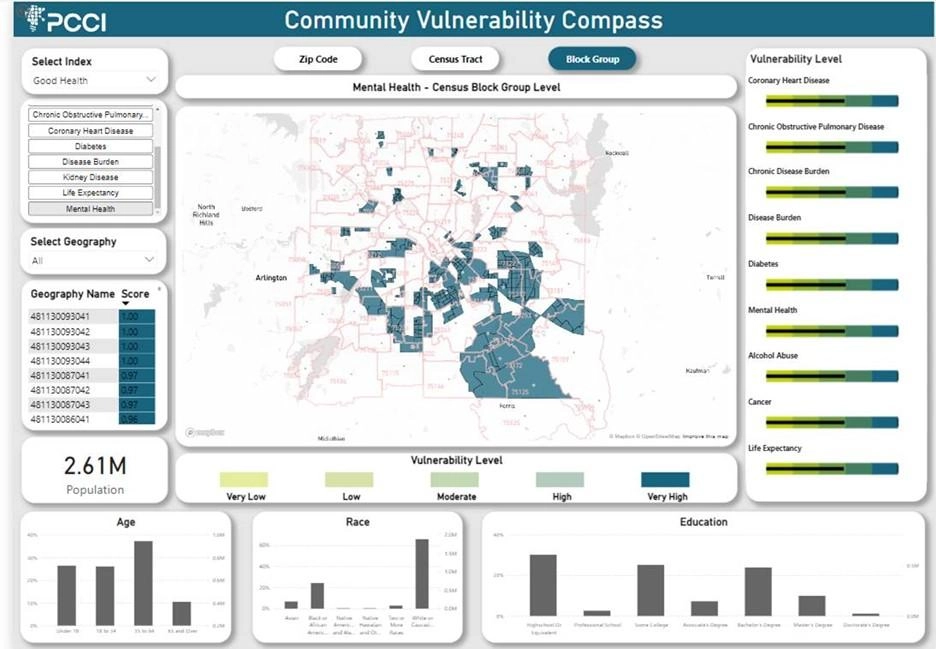SDOH Analytics

PCCI leverages data science and social determinants of health (SDOH) to better support underserved populations across our communities.
Health (and health disparities) are directly affected by SDOH factors. For example, transportation to seek care, access to nutritious food, safe neighborhoods, and stable income all directly impact health outcomes. And while health disparities are frequently seen in terms of race and ethnicity, they also occur across a broad range of dimensions and reflect a complex set of social, environmental, and individual factors. PCCI has developed tools, such as the Community Vulnerability Compass (CVC), to help organizations obtain a more comprehensive and holistic understanding of their communities and service populations.
Through use of the online CVC tool, users can answer questions like:
● What are the socio-economic characteristics of specific neighborhoods in my communities and how vulnerable are they?
● What are the root causes (or drivers of) of the vulnerabilities impacting local health outcomes?
See how PCCI’s CVC measured the mental health vulnerability of Dallas County and what it means to its residents in this story in the Dallas Morning News
Click here to learn more about CVC or to request a demo. Click here to learn about PCCI’s CVC-based engagements.

